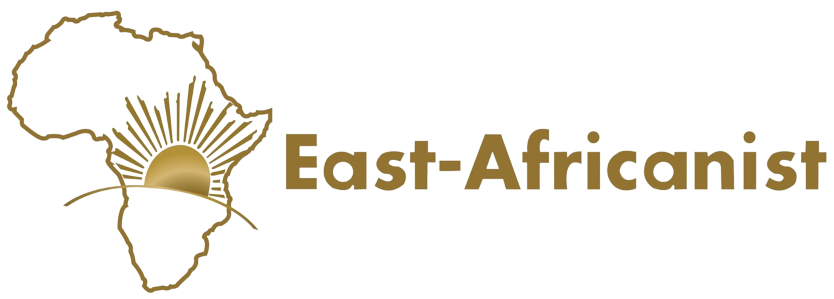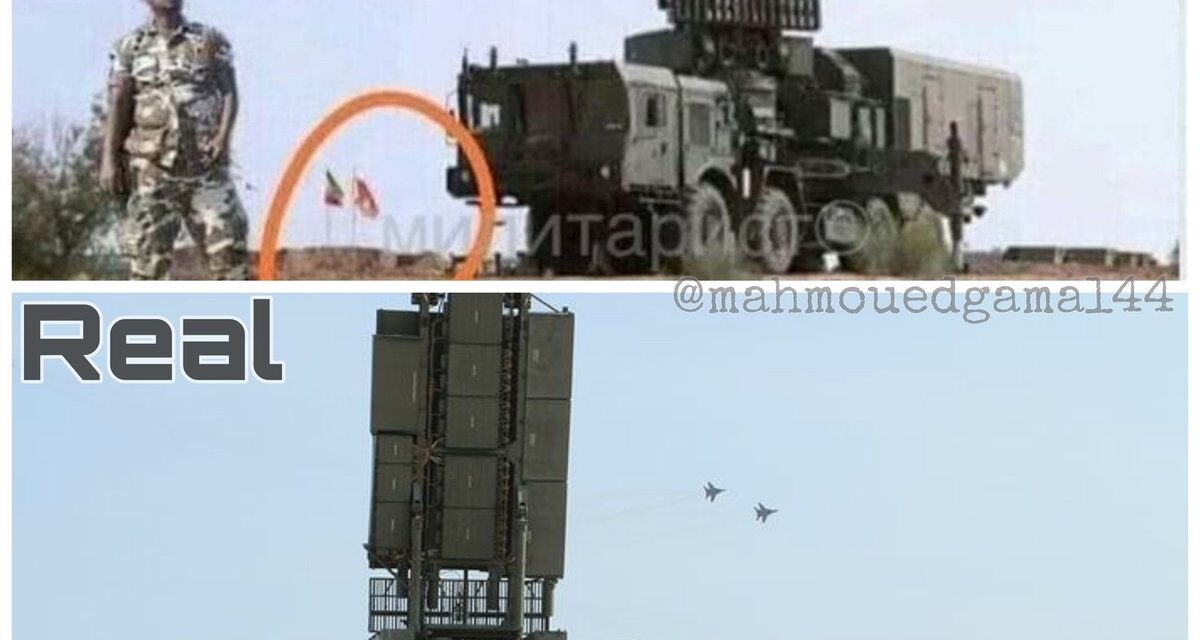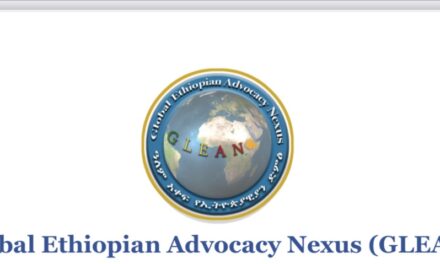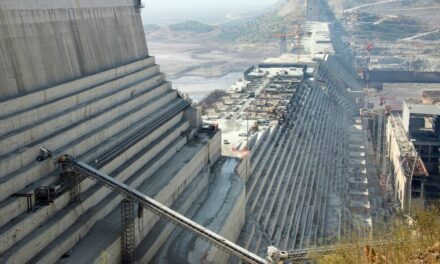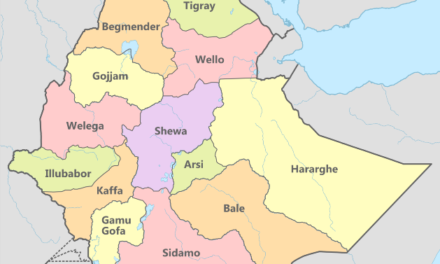The Tigray People’s Liberation Front (TPLF) was good at one thing. Its former leaders knew how to turn international experts into propaganda ninjas. I have in mind international experts such as Alex de Waal, Martin Plaut and Kjetil Tronvoll.
The trio have always been biased towards TPLF. What prompted me to write this piece is not the lack of objectivity in their intervention in Ethiopian politics. Rather, it is their peddling of unsubstantiated and, at times, fabricated and inciteful statements that have become common as of late.
The consequences of their transgressions are grave. Ethiopia isstruggling to deal with a metastasized political cancer that has reduced highly educated intellectuals into tribal groupies. The last thing the country needs is foreigners jumping in the mix with a fervent of a new convert.
In the past, the trio have written a lot about the positive accomplishments of TPLF, including the economic development that TPLF registered during its rule. They have rightly credited Prime Minister Meles for building transformative infrastructure projects, not least the Grand Ethiopian Renaissance Dam. True, it is his dam! What was also true is that when necessary they had the courage to criticize the now defunct liberation front.
What prompted me to write about them is that reading their current writings and rapid-fire twitter barrages is akin to encountering “more Catholic than the pope” type of card-carrying tribal propagandists, utterly devoid of civility and intellectual integrity. As of late, they see nothing remotely wrong with the now defunct TPLF and nothing remotely right with the Ethiopian government.
During its guerilla warfare (1976-1990), TPLF was an internationally condemned terrorist organization. It was known for its serial bank robberies. During the 1984/1985 famine that affected the Tigray region the most, and where a total of 1 million people died in Ethiopia, TPLF was diverting international food aid programs to finance its war.
After it took over the government, TPLF was one of Africa’s most ruthless authoritarian governments. The Human Rights Watch characterized Ethiopia under the TPLF led EPRDF as “one of the most inhospitable places in the world” and documented some of its repressive regiments, including “murder, torture and rape” that bear “the hallmark of crimes against humanity.”
De Waal, who, of recent, has become a cheerleader of TPLF was one of the international experts who accused TPLF of being “responsible for starvation crimes…” Similarly, in 2010, Plaut published a shocking article in the BBC, revealing that TPLF leaders sold sacks of grains mixed with sacks of sand to international NGOs who were buying cereals for food aid.
Ethiopians in the Tigray region were the most affected in the famine dying in thousands every day and TPLF was selling bags of sand to international donors who were trying to save lives. “Some $100 million went through the hands of the TPLF and affiliated groups,” Plaut wrote.
In 2012, Plaut wrote yet another article, exposing that TPLF was using a “fleet of trucks donated to it during the 1984–85 famine by aid agencies” to drive out competition in the transportation sector. “Its fleet of 458 trucks have cornered much of this lucrative market,” lamented Plaut. He further criticized “TPLF’s tight rein on political freedoms and human rights, while giving privileged access to resources to the prime minister’s core constituency in Tigray.”
Speaking of the TPLF late leader, Plaut stated: “Meles acted against his enemies, both inside his own movement (the TPLF) and in the wider Ethiopian society with real ruthlessness.” This was corroborated in an article Tronvoll wrote about the 2005 election conflict: “The police fired live ammunition into the crowds, leaving 193 civilians and nine politicians dead.”
Tronvoll went further: “Three weeks after the election, students staged peaceful protests against the delay in announcing the results. These ended with bloody street fights in the capital’s central business districts of Mercato and Piazza, where security forces and police killed at least 36 people. In the aftermath of the protests, up to 5,000 people were arrested and detained.”
In addition, Tronvoll revealed: “After EPRDF became aware of the great electoral advances made by the opposition, they passed a new parliamentary code of conduct, and a new set of regulations which restricted minority parties from speaking and tabling proposals in the House of People’s Representatives.”
“The only constituency left in Ethiopia which may have political leeway to work as checks-and-balances towards the government’s unaccountable exercise of power is the international donor assistance group (DAG),” continued Tronvoll.
Meles understood that as long as he continues to hold the people hostage, the international donor community will blink. That is exactly what happened. As Tronvoll put it, “As a reaction to the [2005 post-election] crack down on the opposition and civil society, in November 2005, the donor group tried to play tough with Prime Minister MelesZenawi, and jointly decided to suspend all direct budget support to the government.
Meles did not bend, however, and calmly told the DAG representatives to pack up and go home if they were not interested in supporting the development of the country. After a few weeks the international donors caved in and resumed full development assistance to Ethiopia.”
“These incidents imparted a strong message to the donor group in Addis Ababa”, according to Tronvoll. The donor community had two choices: “stay quiescent on internal human rights violations and lack of democracy or face the consequences. Thus, when opposition leaders pleaded for support for election observation in the 2008 local elections, 14 foreign embassies generally washed their hands of the whole exercise for fear of provoking the government.”
The question I can’t get my hands around my head is: What happened to the trios in recent days? How did they fail to be (or pretend to be) at least partially objective as they used to be?
I am not saying all that de Waal, Plaut and Tronvoll wrote in recent days are wrong. Some of what they wrote have been proven credible in general terms. One example is the rampant rape targeting innocent and defenseless girls, though the extent of the problem is yet to be established by credible independent international investigators.
The Ethiopian Human Rights Commission has confirmed 108 cases, far less than the thousands of cases claimed by some people. The 108-figure, in and of itself, is loathsome and accountability must be established. Their claim of Eritrea’s intervention has also been corroborated by several international sources, including by the US government.
In the meantime, none of the trios has written about the Mai-Kadramass murder that was perpetrated by TPLF associated forces. Nor have they condemned it. William Davidson, a senior Ethiopian analyst with the International Crisis Group, characterized the massacres as a “violent Tigrayan reprisals.”
The Amnesty International, the Ethiopian Human Rights Commission (EHRC) and the Ethiopian Human Rights Council (EHRCO) all have pointed fingers at TPLF associated forces. The trio use EHRC’s reports as credible when its reports accuse government associated forces and militia, but not when it accuses TPLF forces.
What is also unfortunate about them is their hyperbolic claims that are all too easy to dismiss because of how unhinged they are. For example, on January 9, 2021, Plaut wrote about and tweeted an unsubstantiated story, stating that there is a “Report that Maryam Tsiyon Church [in Tigray] has been attacked (local people believe with the aim to take the Ark of Covenant to Addis Ababa). Hundreds of people hiding in the Maryam Tsiyon Church were brought out and shot on the square in front. The number of people killed is reported as 750.”
Over a month has passed since Plaut wrote and tweeted this story and many have quoted him, believing it is credible because it was written by an international journalist. To date, no one has confirmed it and Plaut has not retracted it.
Interestingly, the internet outlet that published his article, Europe External Programme with Africa (EEPA), has a disclaimer to distance itself from the story: “All information reported originates from third parties and the content of all reported and linked information remains the sole responsibility of these third parties.” There is, however, a problem with this disclaimer. The story about the summarily massacred 750 Christians simply says there is a “report” but does not say who the third-party reporter was or where the story was reported.
Yet in another publication, on February 10, Plaut wrote about “Reported war situation (as confirmed per 09 February).” The next line reads: “Unconfirmed report received that a payment of 500mln US dollars was made by Ethiopia to President Esayas of Eritrea and that Eritrea was provided with weapons for its participation in the war in Tigray.”
The article went on to share another unconfirmed report that “One year ago, President Esayas from Eritrea pressurised Ethiopia to close the four camps in Tigray. Many of the Eritrean refugees sheltered in the camps have fled the indefinite national service in Eritrea. It is a cruel practice which, according to the UN, constitutes a Crime against Humanity.”
This was written to mislead uninitiated and uninformed international readers. Those who know about Ethiopia and TPLF know that one year ago TPLF was in charge of Tigray and the Ethiopian government was not able to force TPLF to do what it did not want to do. Plaut was using the story to accuse the Ethiopian government of “crime against humanity,” even when the government was not in control of the situation that it was being accused of. This, too, came with a disclaimer that the information remains the sole responsibility of “these” third parties. But no third party is mentioned in the article.
The presence of information gap is no excuse to turn journalists into polarizing peddlers of unsubstantiated and often fabricated stories. This is beyond unprofessional. It is far beyond your run-of-the-mill lack of integrity. It borders on the criminal, sowing animosity between Ethiopians and peddling tribal conflict. It is one thing to see political cadres act this way. It is another seeing international journalists and experts with professorial titles to go behind the beyond and beneath the underneath a modicum of professional integrity.
The government’s reluctance and delay in providing access to credible international investigators has contributed to the frenzy of vicious propaganda by local and foreign bottom feeders. The Ethiopian government must provide unfettered access to respected and respectable international human rights agencies and media outlets.
Transparency cuts both ways in terms of exposing atrocities committed by forces associated with both the government and TPLF.Transparency is the only way to end the frenzy of bottom feeders. Best of all, it is the only way to clear up the fog of polarizing misinformation, establish accountability and begin healing wounds and building a lasting trust.
About the author: Dr. Yonas Biru is a former Deputy Global Manager of the International Economic Comparison Program at the World Bank. Currently, he serves as the member of the Prime Minister of Ethiopia’s Independent Economic Advisory Council, Chair of American University in Africa Foundation, and member of the Executive Committee of Ethiopian Diaspora Communication Alliance.
(The opinion explained in this article does not necessarily reflect EastAfricanist’s position)
